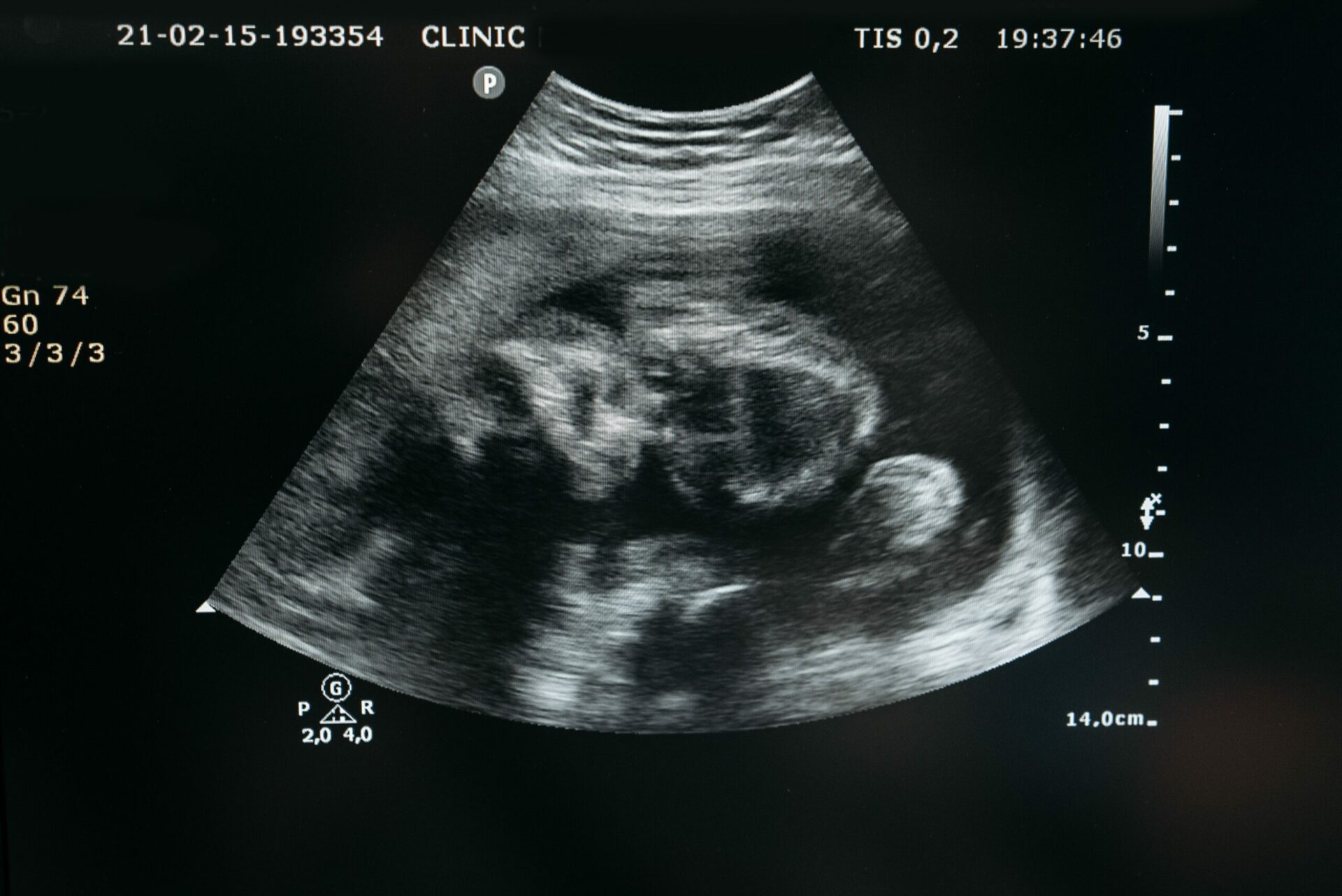Biblical Proof that a Fetus is a Person
Robert E. Fugate, Ph.D.
1. The individual human life initiated at conception is on a continuum with the individual adult life.
The Hebrew terms hareh (conceive) and yelled (give birth, bear a child) occur together 41 times in the Old Testament. The close pairing of these two words clearly emphasize conception, not birth, is the starting point of individual human life.
When a woman conceives she is “with child” (hareh, Gn 16:11; Ex 21:22; 2 Sm 11:5 nkjv; Is 7:14; etc.; Ex 21:22 yeled children), having conceived a “baby” (Lk 1:41, 44) or a “son” (Gn 25:22 ben son; Job 3:3 geber mighty man; Lk 1:36 υἱός son; Lk 2:21 παιδίον child; cf. Lk 1:15) in her womb. Hebrew terms ben, geber, and the Greek υἱός are normally used in Scripture of sons of various ages or of adult men. Likewise, the Hebrew yeled is almost always used of a child (not a baby in his or her mother’s womb). The Greek term βρέφος makes no distinction between an unborn baby (Lk 1:41, 44), a newborn baby (Lk 2:12, 16; Ac 7:19; 1 Pt 2:2), an infant (Lk 18:15), and a young child (2 Tim 3:15). The use of these Hebrew and Greek terms for babies in the womb demonstrate personal identity over time–from a person’s conception through adulthood. No separate Hebrew or Greek words are used to distinguish a fetus from an infant or child.[1] Thus God makes no distinction between potential human life and actual human life, between an unborn fetus and a child already born.
Continuation of personal identity from conception through adulthood is also indicated by the use of personal pronouns (e.g., “I,” “me,” “my,” “you,” etc.) in passages in which a grown man (e.g., Job, Christ, David, the Suffering Servant, Jeremiah, or Jacob) refers back to when he had been a baby in his mother’s womb (Job 3:13; 10:18-19; 31:15; Pss 22:9-10; 139:13-16; 51:5; Is 49:1, 5; Jer 1:4-15; 20:17-18; Ho 12:3).
God himself actively creates and molds each person in the womb (Job 10:8-12; 31:15; Pss 119:73; 139:13-16; Jer 1:5 cf. Ps 78:5-6).
2. The Bible affords legal protection to the unborn child. Accidentally killing an unborn baby is murder and warrants capital punishment because the unborn baby is a “soul” or “living being” (nephesh, Ex 21:22-23;[2] cf. Gn 9:5-6). The life-for-life formula applies to the destruction of a fetus, with no qualification as to how young the fetus might be. The fetus–at any stage of development–is, in the eyes of this law, a living human being.
This case law gives an a fortiori argument (i.e., from the lesser to the greater) regarding the value of fetal life: If these penalties apply to an accidental abortion, how much more do they apply to deliberate abortion!
3. The child in the womb is a separate person from his or her mother (Gn 25:23; Ex 21:22-23; Lk 1:15, 36, 41-44; Gal 1:15).
4. The Bible ascribes sin to the unborn child (Ps 51:5). Sin is ethical, not physical, and only a moral agent (person) can be guilty of sin or have a sin nature. Unborn babies are conceived in sin because they are “in Adam” (i.e., descendants of Adam, the first man, and therefore members of the Adamic or human race; Ro 5:12ff).
5. An unborn baby can be filled with the Holy Spirit (Lk 1:15). In Scripture, only human persons are “filled with the Holy Spirit.”
6. An unborn baby shows signs of personhood, such as leaping for exuberant joy in response to certain human voices (Lk 1:41, 44).
7. God calls some men to special service while they are still in their mother’s womb (Gal 1:15-16; Jdg 13:3, 5, 7; Is 49:1, 5; Jer 1:5; Ro 9:11-12).
8. When a baby dies in the womb (Job 10:18-19; Jer 20:15-18) or in childbirth, its soul enters the afterlife with deceased adults (Job 3:13-15; 2 Sm 12:23).
9. Jesus Christ was fully a person while in his mother’s womb. In the incarnation the Logos took on flesh and became the God-man, Jesus Christ. Scripture tells us that God prepared a physical body for him (Heb 10:5). The Gospels describe some of this process: the Son of God was begotten of the Holy Spirit (Mt 1:20; Lk 1:35); Mary conceived in her womb (Lk 1:31); and Mary brought forth (gave birth to) a son (Mt 1:20; Lk 1:31). Clearly God began the process of the incarnation at the point of conception, not some time later. This was necessary because, in his human nature, Christ “had to be made like his brethren in all things” (Heb 2:17, 14; cf. Ps 22:9-10; Is 49:1, 5; Lk 3:23-38).
This Biblical evidence clearly demonstrates that an unborn baby is a spiritual, rational, moral person.
[Note that in Scripture prenatal death is regarded as a curse and an object of horror (Ho 9:14; Job 3:10-16; 10:18-19; Ec 6:3);contrast Ex 23:26.]
Endnotes
[1] The Hebrew term gōlem (embryo) occurs only once in the Bible (Ps 139:16). If the writers of Scripture had desired to distinguish between an unborn fetus and babies or children who had already been born, the necessary terminology was available.
[2] H. Wayne House, “Miscarriage or Premature Birth: Additional Thoughts on Exodus 21:22-25,” Westminster Theological Journal 41:1 (Fall 1978), pp. 109-123. John M. Frame, “Abortion from a Biblical Perspective,” in Thou Shalt Not Kill: The Christian Case against Abortion, ed. Richard L. Ganz (New Rochelle, NY: Arlington House, 1978), pp. 51-57. Umberto Cassuto, A
Commentary on the Book of Exodus (Jerusalem: Magnes, 1967), pp. 275, 277.
© Robert E. Fugate, 2006
Lord of the Nations, LLC • www.LordoftheNations.world



